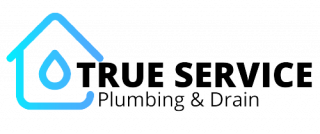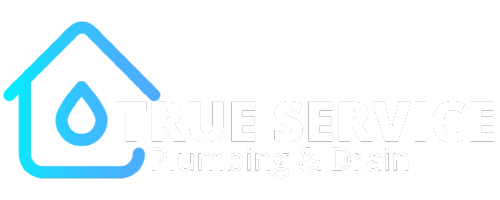Encountering a sewer backup can be a distressing experience. This leaves many homeowners wondering, is the city responsible for sewer backup situations?
Understanding the responsibilities of both the city and homeowners can help you navigate this challenging scenario.
In this blog post, we’ll explore sewer backups, the roles involved, and how you can protect your home from such occurrences.
What is a Sewer Backup?
A sewer backup occurs when wastewater flows back into your home instead of being directed to the municipal sewer system.
This can lead to unsanitary conditions, property damage, and costly repairs. Sewer backups can arise from various causes, including:
- Clogs: The most common reason for backups, clogs can result from grease buildup, hair, soap, and foreign objects.
- Heavy Rain: Intense rainfall can overwhelm the sewer system, causing water to backflow into homes.
- Tree Roots: Roots can infiltrate sewer lines, creating blockages that lead to backups.
Signs of a Sewer Backup
It’s essential to recognize the signs of a sewer backup early to mitigate damage:
- Unpleasant odors emanating from drains
- Slow drainage in sinks, tubs, or toilets
- Gurgling noises from plumbing fixtures
- Water pooling around floor drains or basement areas
If you notice these signs, take immediate action to prevent further issues.
Who is Responsible for Sewer Maintenance?
Understanding who is responsible for sewer maintenance is crucial for homeowners.
Generally, municipalities manage the main sewer lines, while homeowners are responsible for the lateral lines connecting their homes to the city’s system.
City Responsibilities
Cities are responsible for maintaining and repairing:
- Main sewer lines: These carry wastewater from multiple homes to the treatment facility.
- Public sewer infrastructure: Including pumps and treatment plants.
Homeowner Responsibilities
Homeowners typically manage:
- Lateral lines: The pipes that connect your home’s plumbing to the main sewer line.
- Private plumbing systems: Homeowners must ensure that their internal plumbing is in good condition to prevent backups.
When Does the City Take Responsibility?
Determining when the city is responsible for a sewer backup can be complex. Here are some situations to consider:
City Liability
The city may be liable in the following cases:
- Negligence: If the city failed to maintain the main sewer lines or responded inadequately to reported issues, they may be held responsible.
- System Failures: If a significant weather event overwhelms the sewer system and causes widespread backups, the city may be liable for damages.
Homeowner Liability
Homeowners may be responsible if:
- Improper Maintenance: If the homeowner neglected to maintain their lateral lines or plumbing, they might be held liable for damages.
- Obstructed Lines: If the backup resulted from a blockage caused by items improperly disposed of in the sewer system.
What to Do If You Experience a Sewer Backup
If you experience a sewer backup, it’s crucial to act quickly. Follow these steps:
- Stop Using Water: Avoid flushing toilets or running faucets to prevent further issues.
- Assess the Situation: Check for visible backups and determine if it’s affecting multiple drains.
- Contact a Professional: Call a licensed plumber to assess the situation and provide necessary repairs.
Notifying the City
If the backup appears to originate from the city’s main lines, notify your local sewer authority.
Document your findings, including photos and notes, as this information may be necessary for filing a claim.
If you reside within the City of Toronto, you can submit a service request online here or call 311 to have Toronto Water investigate.
How to Protect Your Home from Sewer Backups
Preventing sewer backups is always better than dealing with the aftermath. Here are some effective measures to safeguard your home:
Regular Maintenance
- Schedule Inspections: Hire a professional plumber to inspect your sewer lines regularly.
- Clear Clogs Promptly: Address slow drains and clogs before they worsen.
Install Preventive Devices
- Backwater Valves: These devices prevent sewage from flowing back into your home during a backup.
- Sump Pumps: Installing a sump pump in your basement can help manage excess water during heavy rain.
Proper Waste Disposal
- Avoid Flushing Foreign Objects: Only flush toilet paper and human waste to prevent clogs.
- Dispose of Grease Properly: Never pour grease down the sink. Instead, collect it in a container and dispose of it in the trash.
Landscaping Considerations
- Choose Appropriate Plants: Avoid planting trees near sewer lines to reduce root intrusion.
- Grade Your Yard: Ensure your yard is graded away from your home’s foundation to prevent water pooling.
How to File a Claim Against the City
If you believe the city is responsible for your sewer backup, you may need to file a claim. Here’s a simple process to follow:
- Document the Damage: Take photographs of the affected areas and document any damages.
- Gather Evidence: Collect any maintenance records or reports that indicate previous issues with the city’s sewer lines.
- File the Claim: Contact your local sewer authority to inquire about the claim process. Be prepared to provide your documentation.
More information on filing a claim related to a sewer backup incident with the city of Toronto can be found here on this page.
Time Limits
Keep in mind that there are often time limits for filing claims, so it’s essential to act quickly.
Where to Find More Information
Understanding your rights and responsibilities regarding sewer backups is critical for any homeowner. Here are some resources to help you stay informed:
- City of Toronto: Most municipalities provide information about sewer services and responsibilities. For the city of Toronto – you can find more information on blocked or backed up drains here.
- Plumbing Services: Consulting with a licensed plumbing service can offer insights and preventive measures tailored to your home.
Conclusion
In conclusion, knowing if the city is responsible for sewer backup can help homeowners navigate potential issues effectively.
By understanding the responsibilities of both the city and homeowners, taking preventive measures, and knowing how to respond if a backup occurs, you can better protect your home and your investment.
Stay proactive, informed, and always consult a professional for any plumbing concerns.
Sewer Backup Repair Services with True Service Plumbing
Dealing with a sewer backup in Toronto or the surrounding GTA? True Service Plumbing is here to help.
Whether you’re a homeowner or a business owner, our licensed professionals are ready to tackle sewer backups and provide reliable solutions to prevent future issues.
Our team understands the frustration and damage sewer backups can cause.
We’ll quickly assess the situation, address the problem, and ensure your plumbing is back to working order with minimal disruption.
Don’t let sewer backups disrupt your life. Contact True Service Plumbing today for expert assistance and peace of mind.
We’re committed to keeping your plumbing running smoothly.


